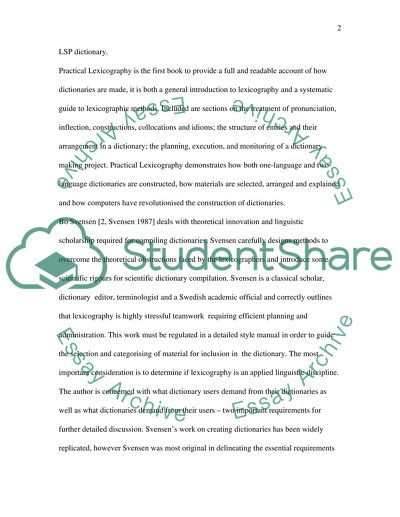Cite this document
(“Practical Lexicography Book Report/Review Example | Topics and Well Written Essays - 1000 words”, n.d.)
Practical Lexicography Book Report/Review Example | Topics and Well Written Essays - 1000 words. Retrieved from https://studentshare.org/english/1512897-practical-lexicography
Practical Lexicography Book Report/Review Example | Topics and Well Written Essays - 1000 words. Retrieved from https://studentshare.org/english/1512897-practical-lexicography
(Practical Lexicography Book Report/Review Example | Topics and Well Written Essays - 1000 Words)
Practical Lexicography Book Report/Review Example | Topics and Well Written Essays - 1000 Words. https://studentshare.org/english/1512897-practical-lexicography.
Practical Lexicography Book Report/Review Example | Topics and Well Written Essays - 1000 Words. https://studentshare.org/english/1512897-practical-lexicography.
“Practical Lexicography Book Report/Review Example | Topics and Well Written Essays - 1000 Words”, n.d. https://studentshare.org/english/1512897-practical-lexicography.


